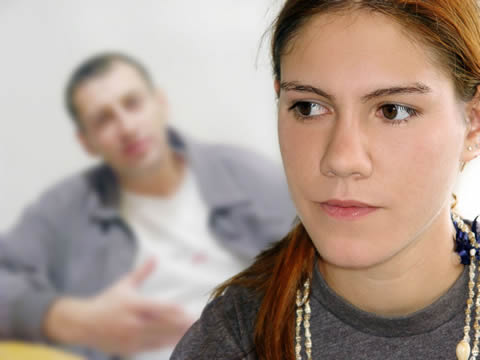Signs of Drug Abuse
 Signs of drug abuse can often be hard to pinpoint, because different types of drugs can produce a wide variety of different effects; thus, there can be a huge variation in many of the physical and behavioral signs of drug abuse that commonly act as outward indicators. Some of the symptoms that are commonly associated with substance abuse could be the result of an individual experiencing high levels of personal stress, going through a period of depression, or could effectively mimic a host of other types of problems. The key to identifying signs of drug abuse is to be acutely alert of any significant changes in your loved one that noticeably affect their physical appearance, personality or behavior.
Signs of drug abuse can often be hard to pinpoint, because different types of drugs can produce a wide variety of different effects; thus, there can be a huge variation in many of the physical and behavioral signs of drug abuse that commonly act as outward indicators. Some of the symptoms that are commonly associated with substance abuse could be the result of an individual experiencing high levels of personal stress, going through a period of depression, or could effectively mimic a host of other types of problems. The key to identifying signs of drug abuse is to be acutely alert of any significant changes in your loved one that noticeably affect their physical appearance, personality or behavior.
Many times, the signs of drug abuse are very easy to spot, because they may be painfully obvious; an example of this is when a loved one finds drug paraphernalia, such as syringes, roach clips, rolling papers, makeshift smoking devices, or roach clips. Psychological signs of drug abuse, that may include paranoia, delusions or psychosis, can identifying a substance abuse problem much more difficult; this is because many of the psychological signs of drug abuse could also be attributed to various different types of mental illness.
The reason that being able to recognize signs of drug abuse is so important is because addiction is not a condition that will just go away on its own; in order to treat a drug or alcohol addiction problem, we must first identify that a substance abuse problem actually exists. Being able to identify signs of drug abuse will often be the first step towards positive change.
The signs of drug abuse can be physical or they can be behavioral; below is a list of the physical and the behavioral signs of drug abuse.
Physical Signs of Drug Abuse
We Can Help You Find The Right Drug Treatment Program.

Call 1-888-794-0381 or email to speak with an addiction counselor about drug treatment programs in your area.
We can help you find the right program that fits your needs and your particular situation. Our counselors are available 24/7. No cost. 100% confidential.
- Noticeable changes in appetite or in regular eating habits.
- Poor physical coordination, including a slow or staggered walk
- Weird sleep patterns, being awake at odd times, and sleeping late
- Blank stare, dilated or constricted pupils
- Shaky hands and cold, sweaty palms
- Pale skin color, puffy face, or blushing
- Smell of alcohol or drugs on the individual's breath, body or clothing
- Hyperactivity or being extremely talkative
- Chronic runny nose, which is sometimes accompanied by a chronic cough
- Needle marks, bruises, or abscesses on arms, legs, neck, or the bottom of their foot
- Excessive sweating that is often accompanied by nausea and vomiting
- Irregular or rapid heartbeat
- Confusion, slurred speech
Behavioral Signs of Drug Abuse
- Noticeable changes in overall personality and attitude with no identifiable cause.
- Hanging out at new places; suddenly avoiding their old friends to hang out with new friends that they do not want to introduce to their family
- Dropping activities and hobbies that meant a lot to them in the past
- Noticeable drop in school grades or they begin to exhibit poor job performance; chronic tardiness, or just skipping school or work altogether
- Appears to have difficulty paying attention; chronic forgetfulness
- Exhibits a general lack of motivation and energy and is dishonest
- Suddenly develops a resentful type of an attitude, starts to throw regular temper tantrums
- Begins to have a number of unexplained falls and gets into car accidents
- Appears to be extremely nervous and irritable; has erratic mood changes.
- Is often quite silly or they act giddy at times
- Acts paranoid, commonly thinks that others are against them
- Displays an excessive need for privacy; often cannot be reached
- Becomes secretive and exhibits suspicious behavior
- Has an unexplained need for large amounts of money; begins to steal things from other family members
- Noticeable changes in their personal grooming habits; stops brushing their teeth, wearing wrinkled or dirty clothes
- Becomes depressed, which can result in behaviors such as social withdrawal
- Increase in risk taking types of behavior; having unsafe sex; this includes sharing needles or other types of drug paraphernalia
- Has sudden emotional outburst that could begin to jeopardize their family and work relationships
- Begins to commit crimes in order to be able to get the money that they need to feed their habit.
Recognizing signs of drug abuse in adolescents, creates a whole different set of challenges; this is because teenagers will naturally begin to exhibit a number of physical and behavior changes as they are going through the stages of puberty. Some signs of drug abuse in teens will be painfully obvious, such as when a straight A student begins to bring home D's and F's; additionally, when a parent notices a strange smell coming from an area in the house where their teenager is hanging out with friends, and upon closer inspection walks into a smoke filled room, these would be obvious signs of drug abuse. Fortunately, many adolescents will be careless in regard to their drug use, which will give their parents an unique opportunity to be able to intervene. It is important for a parent to know what some of the most commonly abused teen drugs look like.
Listed below are some brief descriptions for some of the most common drugs of abuse in relation to teenagers:
- Marijuana
- is one of the most popular drugs that teen will abuse; it is gray, green or brown in appearance and commonly contains stems, leaves or flowers from the cannabis plant.
- Amphetamines
- these types of drugs are commonly used by teenagers as "uppers" and can be found on the street in a powdered form, as in the case of crystal meth; additionally, prescription amphetamines such as Ritalin, are available in both tablet and extended release capsules.
- Cocaine
- is commonly available in the form of a fine white powder, except for in the case of crack cocaine; this form of cocaine can be purchased on the street and looks like tiny crystal rocks.
- Sedatives
- are extremely popular in relation to teen drug abuse; sedatives are most commonly available in tablet or capsule form.
Need help finding treatment?
Choosing the correct treatment program for yourself or a family member can be one of the the most important decisions you ever make. With so many choices for treatment, and so many variables to consider, getting help from a knowledgeable addiction specialist who understands what types of treatment will work best is invaluable.
Our addiction specialists are available 24 hours a day to answer any questions you may have about treatment. All calls and services are completely free of charge and completely confidential. Start your recovery today!
-
11,762
Rehab Centers
-
4,146
Locations
-
82,334
Services Offered
-
Infinite
Lives Saved

